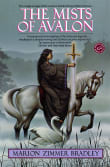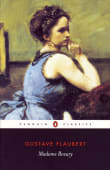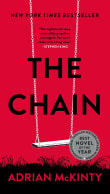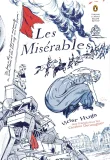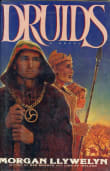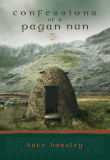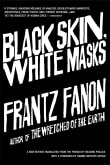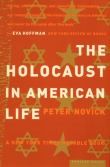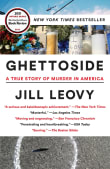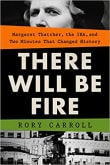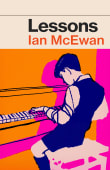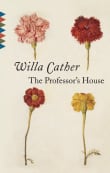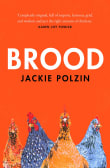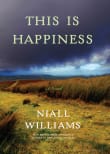Say Nothing
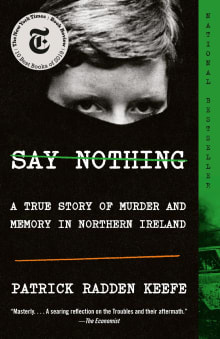
Book description
NEW YORK TIMES BESTSELLER •From the author of Empire of Pain—a stunning, intricate narrative about a notorious killing in Northern Ireland and its devastating repercussions
"Masked intruders dragged Jean McConville, a 38-year-old widow and mother of 10, from her Belfast home in 1972. In this meticulously reported book—as finely paced…
Why read it?
9 authors picked Say Nothing as one of their favorite books. Why do they recommend it?

This is a master class in investigative journalism and in nonfiction storytelling. Radden Keefe is one of my journalistic role models, and this book about the troubles in Northern Ireland is gripping from page one as it investigates the 1972 murder and abduction of Jean McConville in a way that probably only a foreigner could do, given the sensitivity of the topic. It is a vital historical document, a gripping thriller, and an empathetic social observation all in one.
From Sune's list on nonfiction stories that can rival any novel.

This book recounts the fascinating history of the Troubles in North Ireland and the period of violence that ensued between Irish separatists seeking freedom from England and the British Army, who essentially occupied entire parts of Ireland and put its citizens under martial law.
Part the biography of key figures in the Irish Republican Army, part anatomy of how violence happens in inter-communal disputes, the book reminds us that the same dynamics that existed during the Iraq War in Anbar province between occupier and occupied also existed in the United Kingdom in the 1970s.
From Christopher's list on how technology is changing the future of war.

Say Nothing captures, perhaps better than most, the sheer nothingness left behind by moral injury. And, in doing so, Keefe manages to spawn empathy, even for those who “disappeared” others—a menacing verb; an unspeakable crime.
The book, then, is another reminder that moral injury can affect anyone, no matter how innocent or despicable—and that we should, just maybe, express a bit less judgment and a bit more empathy.
History books tend to be two-dimensional, stagnant even. But I found Keefe’s storytelling to be masterful and engrossing. He avoids the tedious unloading of historical facts that makes a story dense and…
From E.M.'s list on moral injury and the dark night of the soul.
If you love Say Nothing...

I’ve always found the history of The Troubles fascinating, as grim and confounding as it is. This book does an excellent job of providing a general overview of that history by taking the disappearance in the 1970s of a single mother as its starting point.
Say Nothing reads like a murder mystery (because it basically is one) as it winds its way through the streets of Belfast and Northern Ireland’s turbulent, recent past. Narrative nonfiction at its best.

Say Nothing is nonfiction. Keefe is a first-rate storyteller, an expert researcher, and a writer who can explain complex matters simply and beautifully.
Even if you’re not interested in the Troubles of Ireland, or in Ireland, this book allows for an understanding of how local war is, how neighbors become enemies, how war breeds war, and how governments don’t work to erase poverty or manage the anger of young people.
On top all of that, there are the archives at Boston University, which figure in the tale, and, the passage of time, which allows the participants to reflect on their…
From Jane's list on sad but funny bummer literature.

A harrowing account of the disappearance of a poor Belfast mother of 10 at the paranoid height of the Troubles in Northern Ireland in the early 1970s, and the impact it had on her family.
Jean McConville was suspected, on scant evidence, of spying for the British, and her body wasn’t found for three decades. It was no secret who was behind her killing – the Provisional IRA – but the silence surrounding the case was deafening.
I found the book riveting because of the way Keefe used the McConville case to explain the Troubles. It powerfully drove home the…
From Mark's list on the Irish Republican Army from the 1920s to 1990s.
If you love Patrick Radden Keefe...

Growing up in Britain in the 1970s, I knew bad things were happening in Northern Ireland and I had a sense that what we heard on the BBC was one-sided and not to be trusted. This book is a revelation, not only in making sense of the Troubles on both sides of the sectarian divide but also in telling the story from the inside, with an intimacy of detail to make you gasp over and over. It’s a real page-turner, full of unforgettable characters forced to navigate the daunting moral consequences of their own and others’ actions. By the end,…
From Andrew's list on overturning received wisdom.

I can read about Ireland’s past, druids, myths, and legends but here we are in the modern era. Ireland still grapples with a divide. It’s moved on from druids to Catholics and Protestants. And really, the divide isn’t religious as much as it is political. This comes to a head during “The Troubles” of the 1960s and 1970s into this century. Radden Keefe focuses on the tragic murder of Jean McConville in Belfast to then detail the dealings of the IRA, Gerry Adams, and the tenuous peace accords.
From Sheila's list on pagans, saints, and love.

Like many Americans growing up in the 80s, I was aware of “The Troubles,” but I had no idea what was actually happening between the UK and Northern Ireland. You would randomly hear about car bombs and the like but didn’t know what they were all fighting about. Reading Keefe’s book, you get an understanding of what it was like to live in Northern Ireland and why this was all happening. It's narrative non-fiction at its best and is a remarkable piece of work.
From Joe's list on that made me write a book about my life.
Want books like Say Nothing?
Our community of 12,000+ authors has personally recommended 100 books like Say Nothing.


